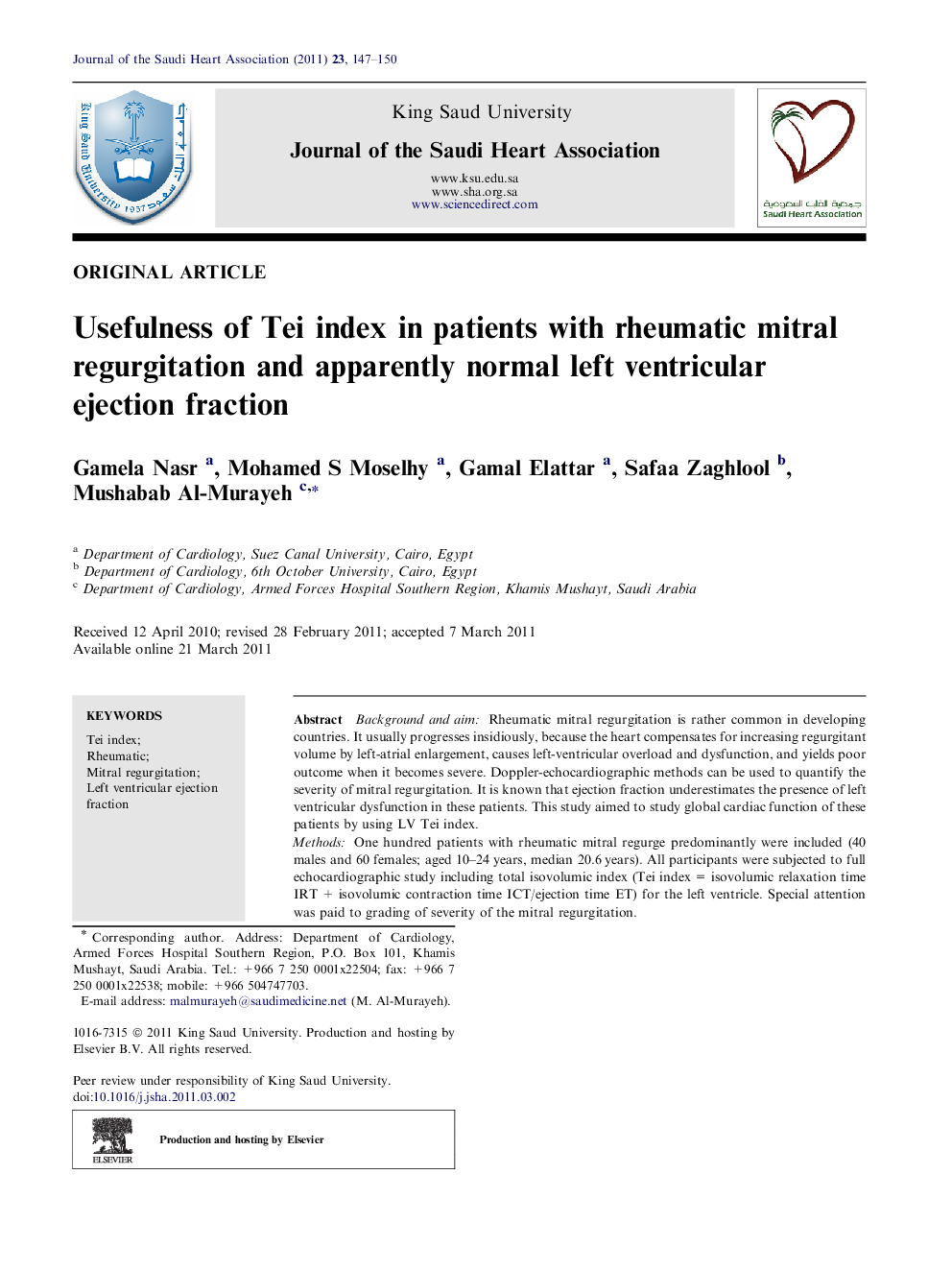| Article ID | Journal | Published Year | Pages | File Type |
|---|---|---|---|---|
| 2978471 | Journal of the Saudi Heart Association | 2011 | 4 Pages |
Background and aimRheumatic mitral regurgitation is rather common in developing countries. It usually progresses insidiously, because the heart compensates for increasing regurgitant volume by left-atrial enlargement, causes left-ventricular overload and dysfunction, and yields poor outcome when it becomes severe. Doppler-echocardiographic methods can be used to quantify the severity of mitral regurgitation. It is known that ejection fraction underestimates the presence of left ventricular dysfunction in these patients. This study aimed to study global cardiac function of these patients by using LV Tei index.MethodsOne hundred patients with rheumatic mitral regurge predominantly were included (40 males and 60 females; aged 10–24 years, median 20.6 years). All participants were subjected to full echocardiographic study including total isovolumic index (Tei index = isovolumic relaxation time IRT + isovolumic contraction time ICT/ejection time ET) for the left ventricle. Special attention was paid to grading of severity of the mitral regurgitation.ResultsLV ejection fraction was preserved in all cases but, however, the total left isovolumic index was prolonged 0.56 ± 3 in 64 of them (34 females and 30 males) denoting masked LV dysfunction P < .00001. There was a correlation of increasing severity of dysfunction with the degree of mitral regurgitation.ConclusionEjection fraction underestimates the presence of left ventricular dysfunction in these patients. However, this was unmasked by the Tei index which could be an additive data for detecting early left ventricular dysfunction.
